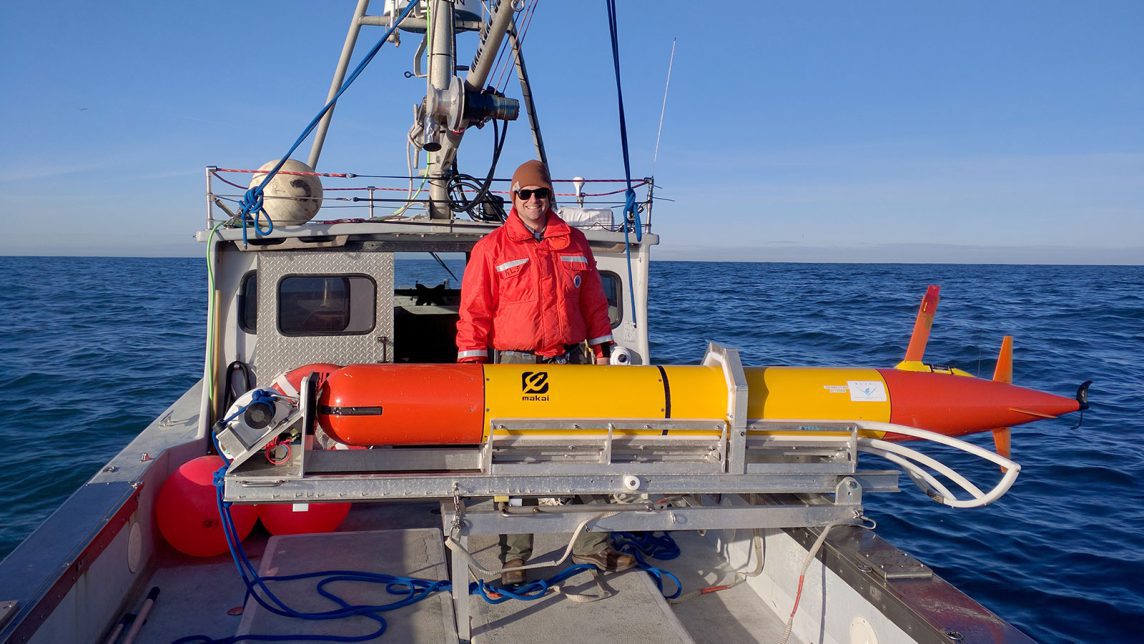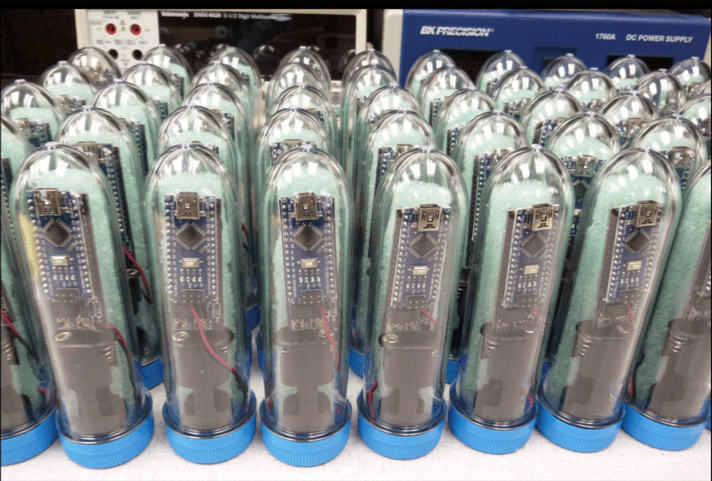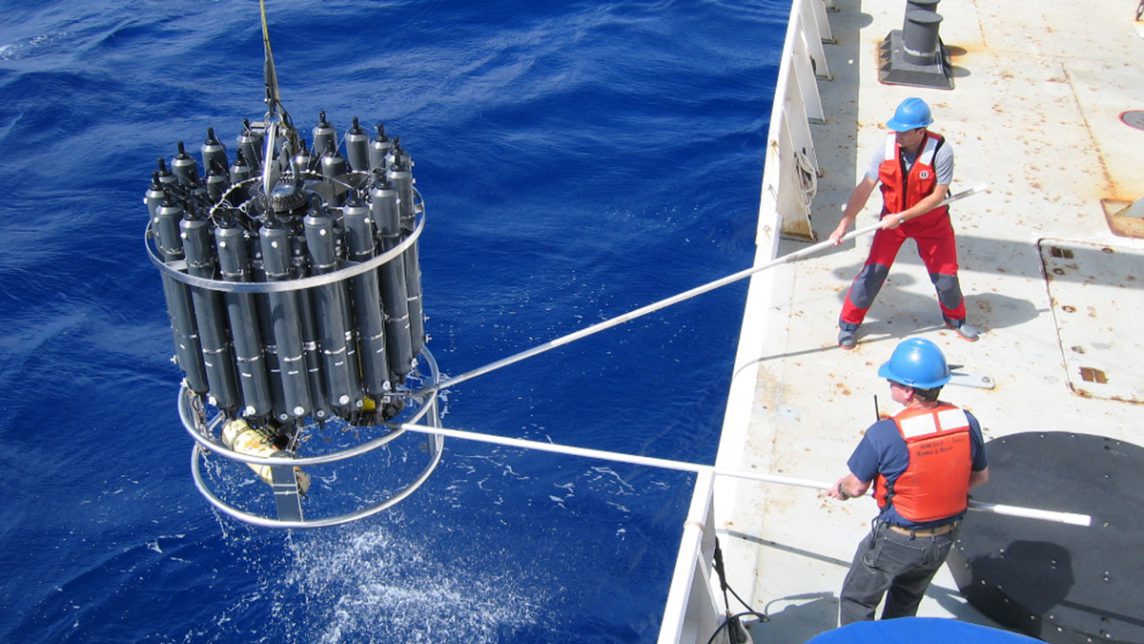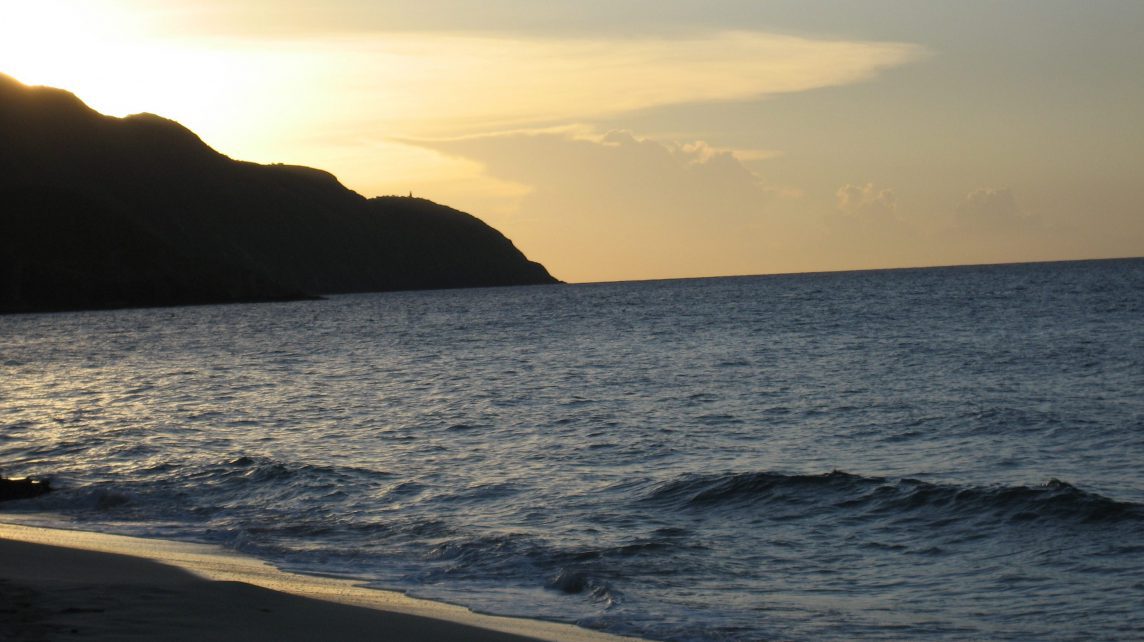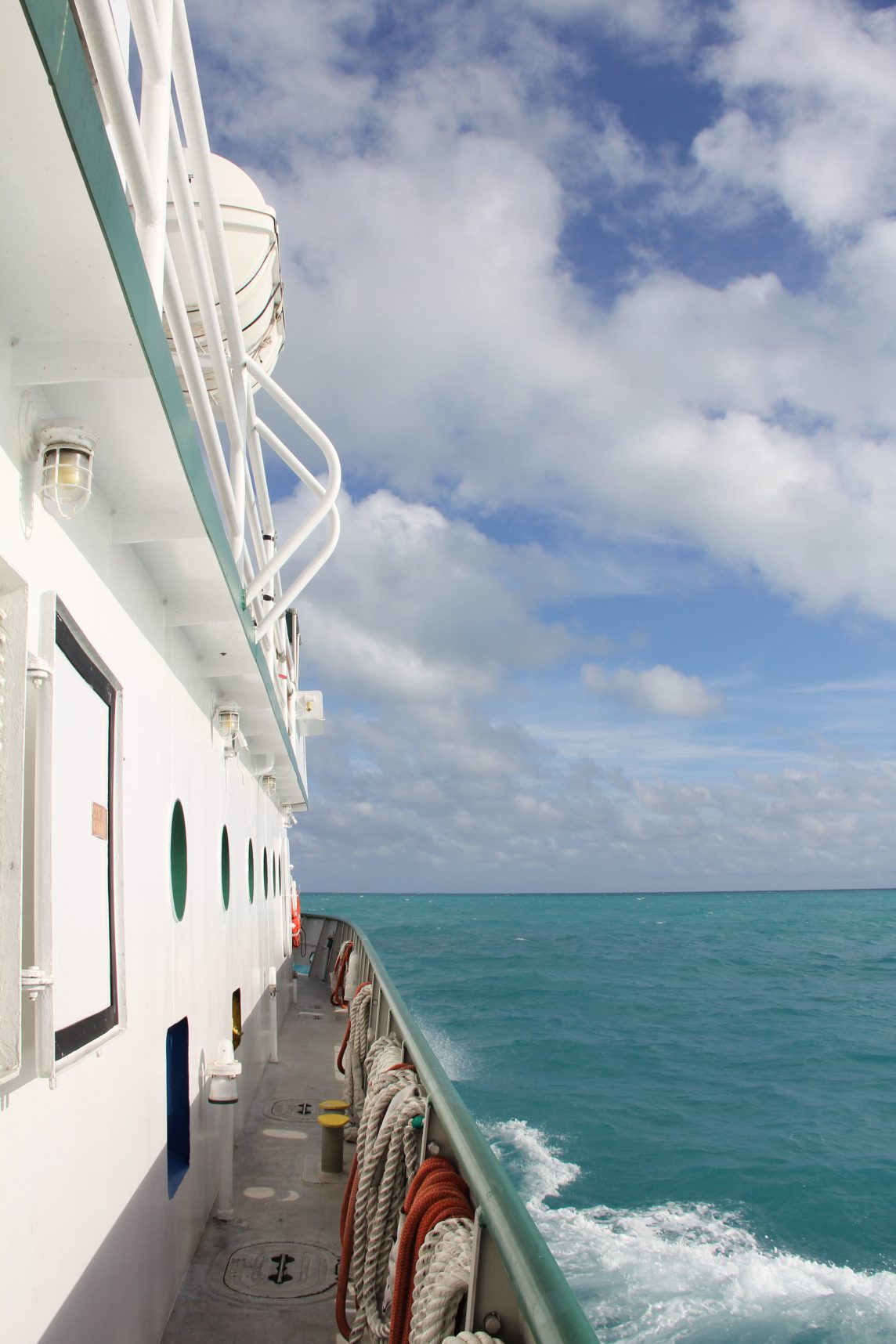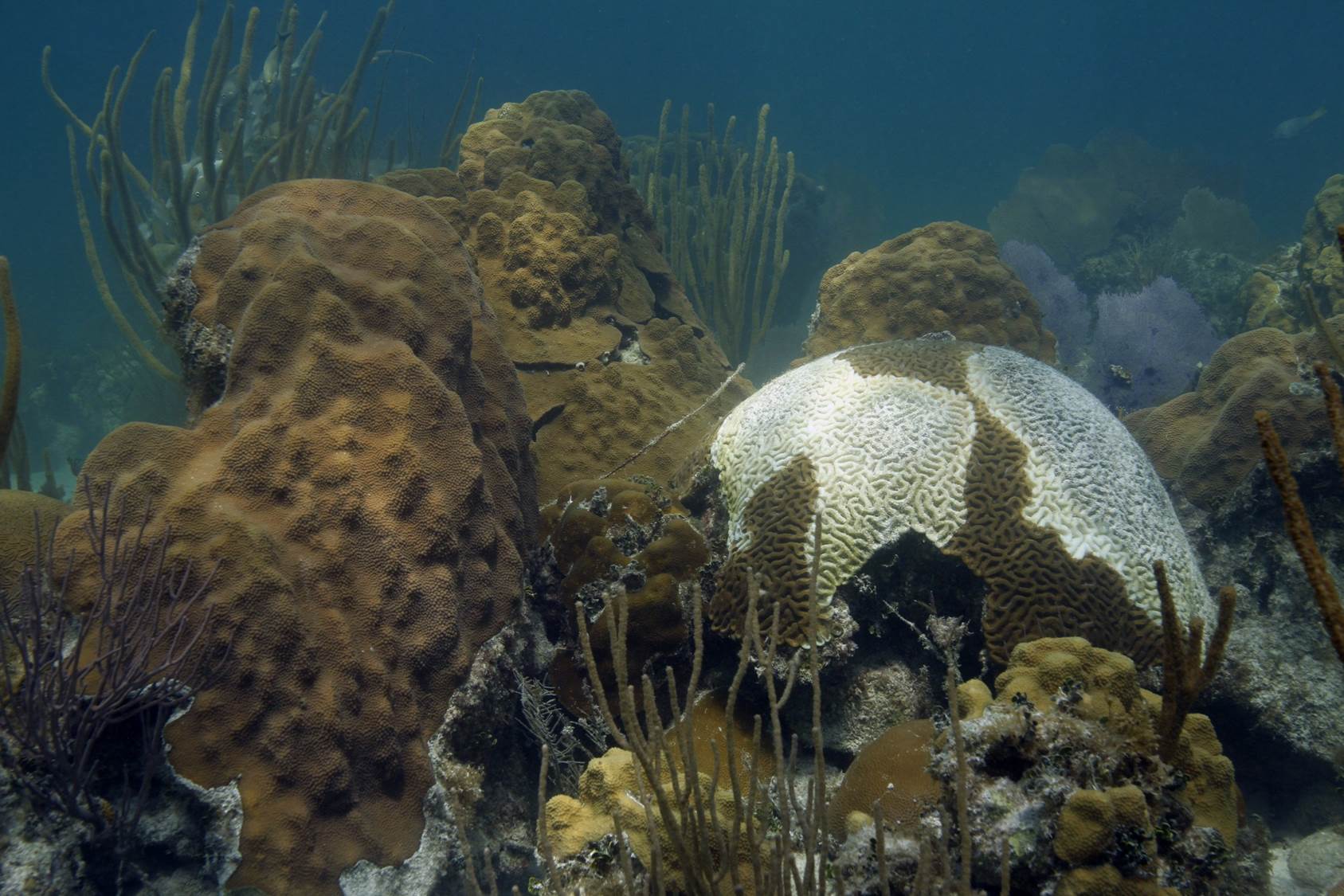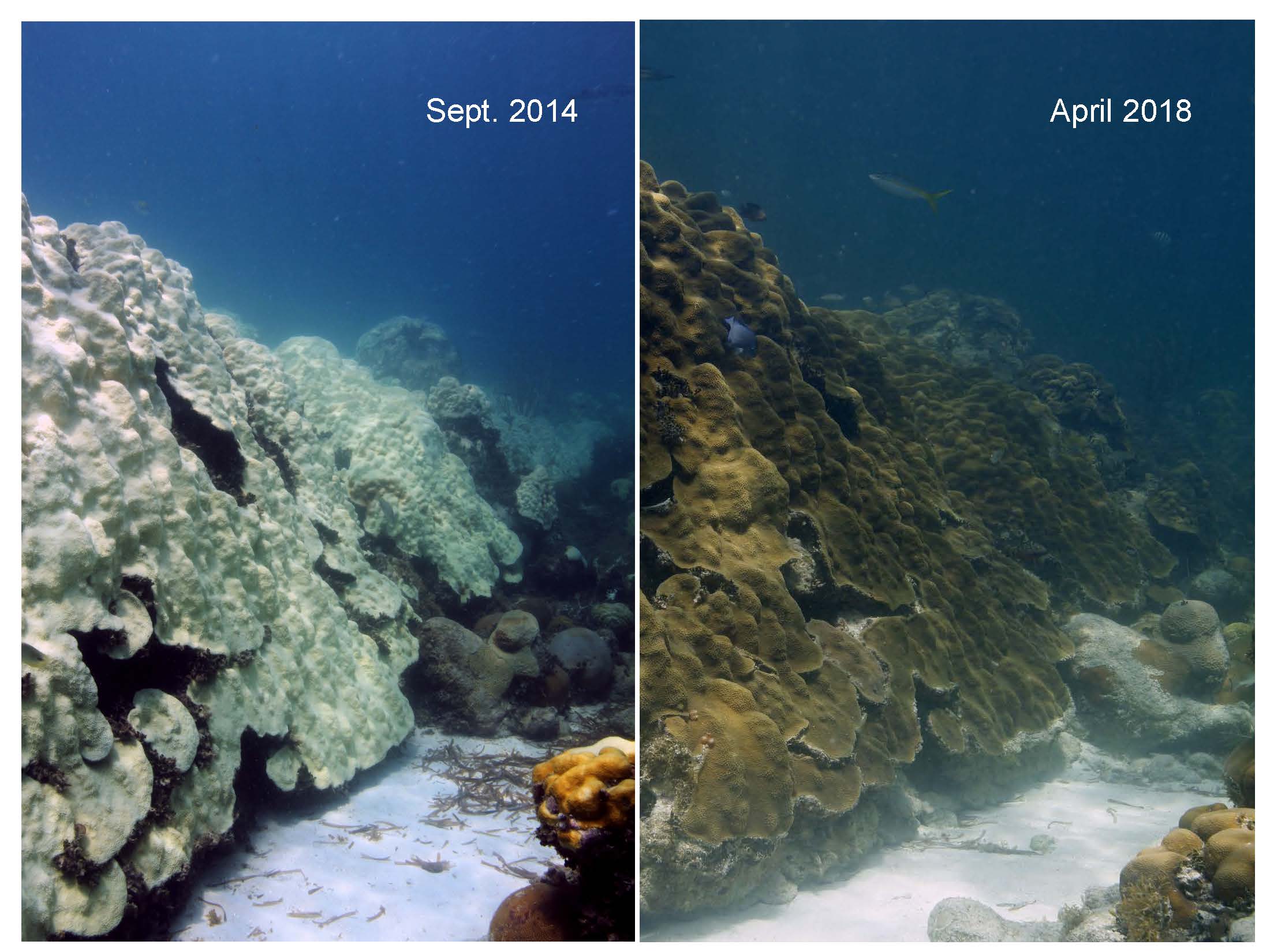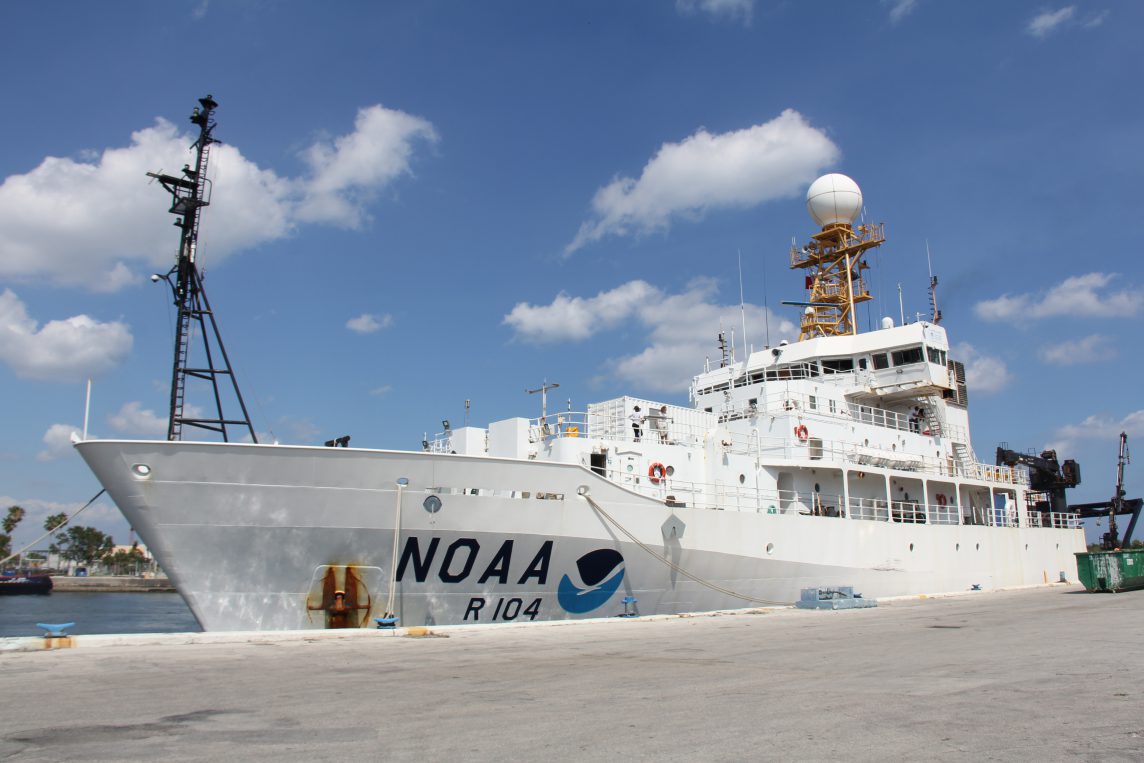Scientists from NOAA and the Monterey Bay Research Institute (MBARI) are teaming up on June 3-4, 2019 to conduct a complex mission which will integrate acoustic measurements and autonomous sample collection for analysis of environmental DNA (eDNA). Through these efforts NOAA scientists hope to develop faster and cheaper ecosystem assessment methods, ensure sustainable fisheries and broaden our understanding of life in the oceans.
New NOAA, Partner Buoy in American Samoa Opens Window into a Changing Ocean
NOAA and partners have launched a new buoy in Fagatele Bay within NOAA’s National Marine Sanctuary of American Samoa to measure the amount of carbon dioxide in the waters around a vibrant tropical coral reef ecosystem. “This new monitoring effort in a remote area of the Pacific Ocean will not only advance our understanding of changing ocean chemistry in this valuable and vibrant coral ecosystem but will also help us communicate these changes to diverse stakeholders in the Pacific Islands and across the United States,” said Derek Manzello, coral ecologist with NOAA’s Atlantic Oceanographic and Meteorological Laboratory.
AOML Temperature Sensor to be Deployed at Reef Sites Worldwide
Researchers with AOML’s Ocean Chemistry and Ecosystems Division have entered into a collaborative agreement with Reef Check Foundation to deploy an AOML-designed temperature sensor at coral reef sites around the world. Measuring only six inches in height, the inexpensive, highly-accurate sensors will greatly enhance efforts to more precisely monitor small-scale temperature fluctuations that occur at reefs over time and at various depths.
Scientists Use 3D Printing Technology to Study Water Chemistry at Coral Reefs
AOML researchers have taken an innovative approach to studying the changing carbonate chemistry of seawater at shallow coral reef sites. Using 3D printing technology made possible by the new Advanced Manufacturing and Design Lab at AOML, researchers with the Acidification, Climate, and Coral Reef Ecosystems Team, or ACCRETE, have created a water sampler in-house.
Global Ocean is Absorbing More Carbon from Fossil Fuel Emissions
The new research published by NOAA and international partners in Science finds as carbon dioxide emissions have increased in the atmosphere, the ocean has absorbed a greater volume of emissions. Though the volume of carbon dioxide going into the ocean is increasing, the percentage of emissions — about 31 percent — absorbed by it has remained relatively stable when compared to the first survey of carbon in the global ocean published in 2004.
BEACHES Study Promotes Health & Safety for Beachgoers
Few accessible places represent Earth’s natural beauty quite like our beaches, but looks can be deceiving if there is a bacterial outbreak or contamination from offshore activities. Not being able to see these contaminants puts families at risk of exposure if they aren’t properly warned. The BEACHES project (Beach Exposure And Child Health Study), a collaboration between the University of Miami’s College of Engineering and the Cooperative Institute for Marine and Atmospheric Studies and AOML, along with the Universities of Arkansas and Texas, aims to pair child behavioral science with microbiology to address exposure risk of beachgoers.
Cruising for Conservation: Restoring Florida’s Water Quality
In August 2018, a team of biological oceanographers and ecologists set sail on the R/V Walton Smith to sample the waters of Biscayne Bay & Florida Bay. AOML has conducted regular interdisciplinary observations of south Florida coastal waters since the early 1990’s. We spoke with Chris Keble, the lead scientist for AOML’s South Florida Ecosystem Restoration Research project, to learn more.
Coral Reefs will be Unable to Keep Pace with Sea-Level Rise
NOAA contributed to a study published today in the journal Nature that compares the upward growth rates of coral reefs with predicted rates of sea-level rise and found many reefs would be submerged in water so deep it will hamper their growth and survival. The study was done by an international team of scientists led by the University of Exeter in the United Kingdom.
Coral Bleaching Study Offers Clues about the Future of the Florida Keys Reef Ecosystem
A recent study by AOML and partners identified coral communities at Cheeca Rocks in the Florida Keys National Marine Sanctuary that appear to be more resilient than other nearby reefs to coral bleaching after back to back record breaking hot summers in 2014 and 2015 and increasingly warmer waters. This local case study provides a small, tempered degree of optimism that some Caribbean coral communities may be able to acclimate to warming waters.
Indian Ocean Hydrographic Cruise Allows Scientists to Sample for the First Time Since 1995
Existing observations show that Indian Ocean surface water temperatures have been increasing since the 1970’s. But has the deep ocean warmed? Have the regional concentrations of dissolved oxygen, carbon dioxide, or nutrients changed? Has the western Indian Ocean become more acidic? These and more questions will be addressed by scientists after the completion of this cruise.
